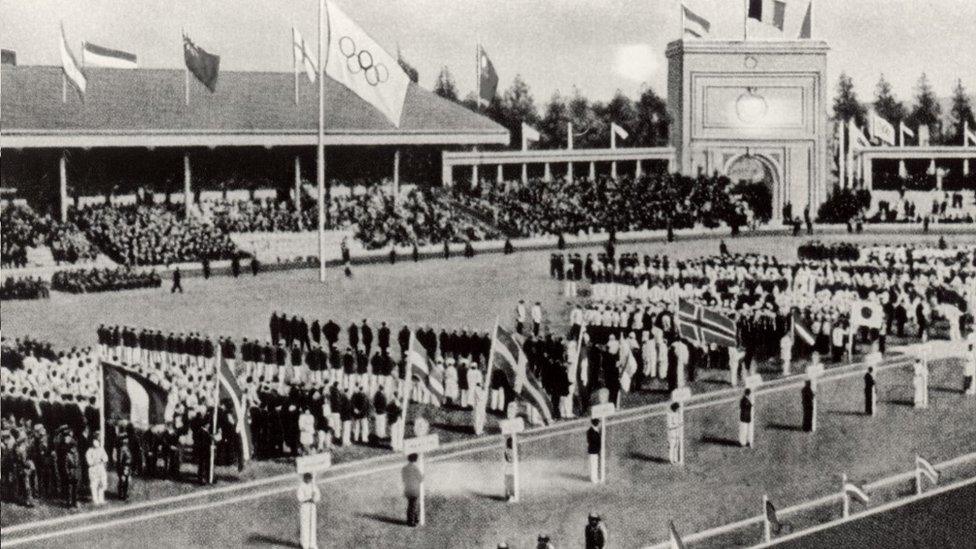Cecil Griffiths: Forgotten athlete gets fitting memorial
- Published
Olympics: Gold medallist Cecil Griffiths gets headstone
He is one of Britain's youngest Olympic champions, but Cecil Griffiths died in poverty, laid to rest in an unmarked grave in London.
At 20, the Welsh runner triumphed in the 4 x 400m relay team in the 1920 Antwerp games.
Now, after almost 80 years since his death, the Neath gold medallist's grave has a headstone installed.
His granddaughter, Vanessa Hanna, wanted to see a fitting memorial at her grandfather's grave before she died.
A campaign by Mrs Hanna, who has terminal cancer, moved and inspired a memorial mason in Cardiff to come forward to make and donate the headstone.
A ceremony has now been held at the graveside in Edgware, London.
'Robbed'
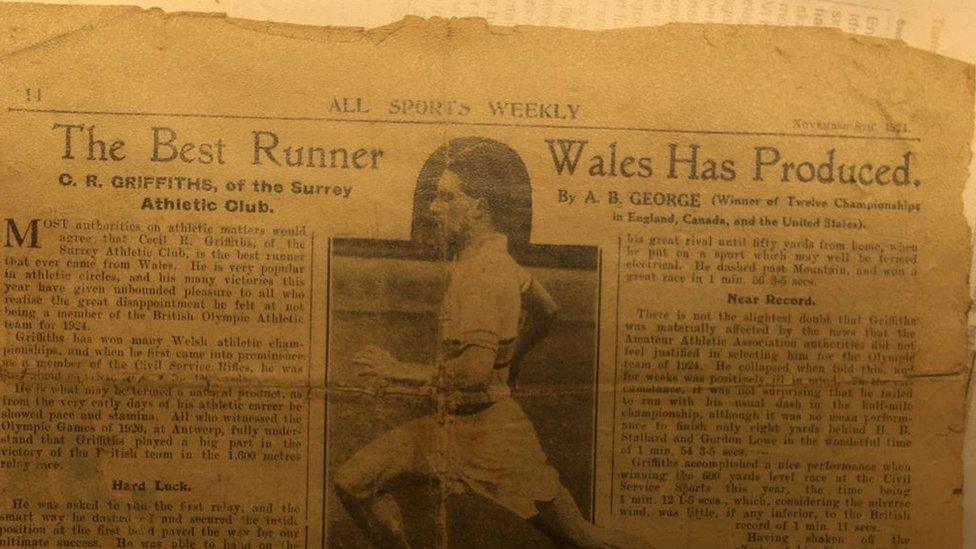
The family have kept news cuttings about their Olympian relative
He was viewed as one of the best in the world, but in 1923 the Amateur Athletic Association imposed a lifetime ban on him after discovering he accepted a cash prize of £1 as a teenager, which contravened the rules.
His family say he was "robbed" of a shot at competing at the 1924 "Chariots of Fire" Olympics after the lifetime ban.
A former Territorial Army volunteer, he was 20 when he travelled to Belgium for his first and only Olympics.
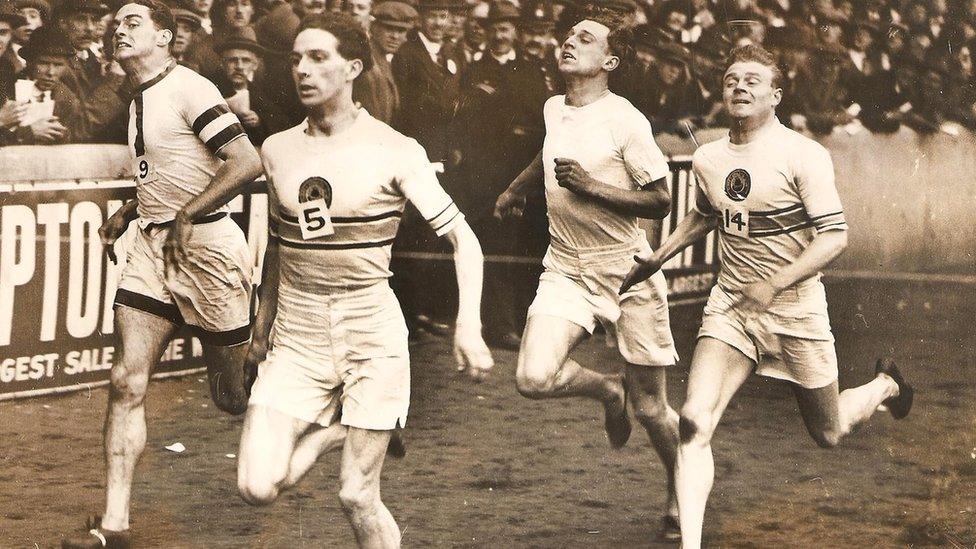
Cecil Griffiths is Wales' youngest Olympic track and field gold medallist
Illness forced the Surrey Athletics Club member out of the individual 400m event, but he starred in the relay and helped Britain win their first of just two 4x400m relay Olympic titles.
When he died in London in 1945, aged 45, financial hardship meant his family were unable to afford a headstone for his grave at St Lawrence's Church in Edgware.
'Legacy lives on'
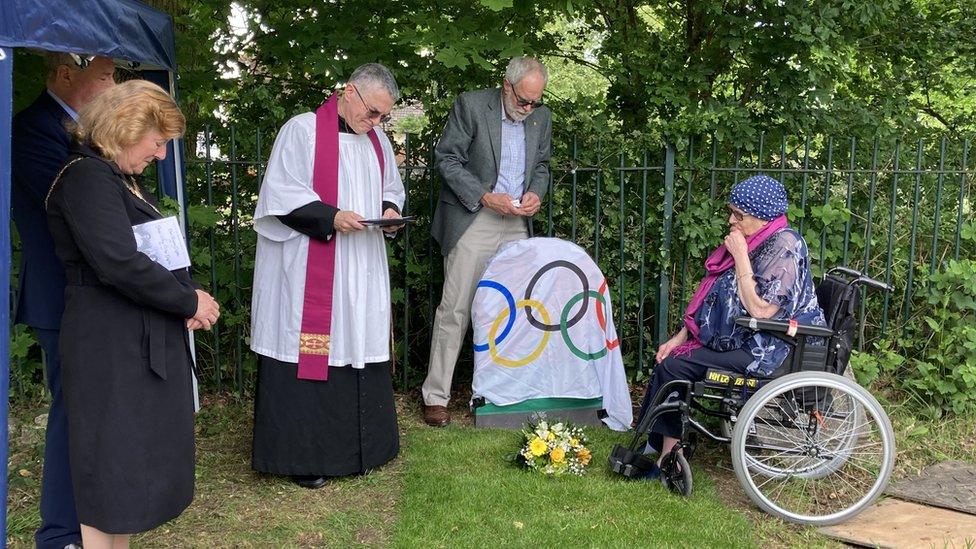
Vanessa Hanna (right) has been campaigning to get more recognition for her grandfather, Cecil Griffiths
Mrs Hanna started a campaign to place a headstone at the unmarked grave before she dies.
She said: "Upon seeing the Welsh slate headstone and gold medal inscription I was overcome with emotion and proud of my grandfather's achievements in life, even through adversity.
"I feel closer to him even more so now, we can visit his marked grave and thank everyone for enabling me to see this while I can, and know his legacy will live on."
The 66-year-old, who is in the late stages of rhabdomyosarcoma, a rare type of soft tissue cancer, said her grandfather never recovered from the ban.
"I feel it was cruel when he was banned from the Olympics, he went into a deep depression afterwards," she said.
"He was robbed because he could have achieved so much more, and I feel that now about myself being robbed of my life, because of cancer, it has robbed me of a normal life with my husband and grandchildren," she added.
'Household name'
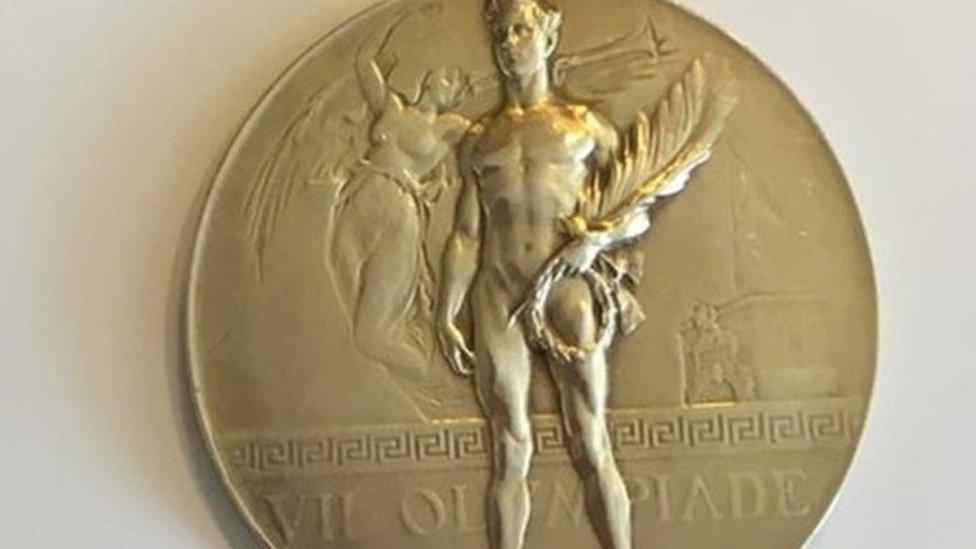
His family still has Cecil Griffith's Olympic gold medal from 1920
The runner's' biographer and grandson-in-law, John Hanna, said: "A newspaper article from The Times called him 'The best runner Wales has produced', and I believe that could stand to this day."
The gold medallist followed up his Olympic success with British half-mile titles in 1923 and 1925, and remained in the top three for nine years.
"Only a few weeks before the 1924 Olympics, Cecil beat Douglas Lowe in the half-mile race, and beat him comfortably, but with Cecil banned, Lowe went on to win gold at the Paris Olympics in the half-mile," said Mr Hanna.
"He could have run in the relay too, so I believe he could have won a further two medals if he'd been allowed to compete, and that would have put him right at the top of the league of British athletes' medal tally in track and field."
Mr Hanna said the Amateur Athletics Association wanted him out of their hair as he was beating all their upper-class university competitors, and when they found out he had won a small prize when he was 17 and running in charity events, they used that against him and banned him for life.
His family believe the ban stopped him becoming a household name, and in 1931, facing financial hardship in the Depression, he sold all his medals and trophies apart from his Olympic gold, which his family still treasure.
'Welsh hero'
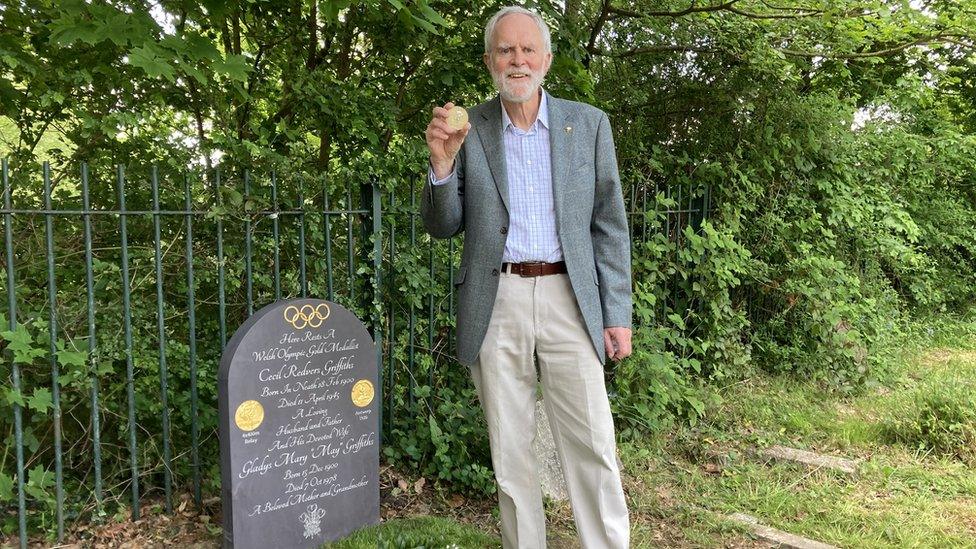
John Hanna following the unveiling of the new headstone
Mossfords Memorial Masons in Cardiff decided to make and donate the headstone after reading about Mr Griffiths story.
"We saw the remarkable story on BBC Wales, and given the background of this story, our first thought was what a shame this man has an unmarked grave after all he'd achieved," said Simon Morgan, of Mossfords.
"Then reading about Vanessa and her illness sealed the deal, Vanessa and John are so inspirational with what they were trying to achieve we just felt it was the right thing to do.
"Time is precious for Vanessa, so we wanted to make this donation for her, and for a Welsh hero who hasn't really been recognised."
The headstone is carved from Welsh slate, and engraved with the Olympic rings and a replica gold medal, marking his achievements.

LAST CHANCE TO SAVE: Will Millard explores some of Wales’s hidden historic buildings
CAREER CHANGE WITH A DIFFERENCE: Police new recruits adapt to life on the beat

- Published29 July 2021

- Attribution
- Published18 August 2016
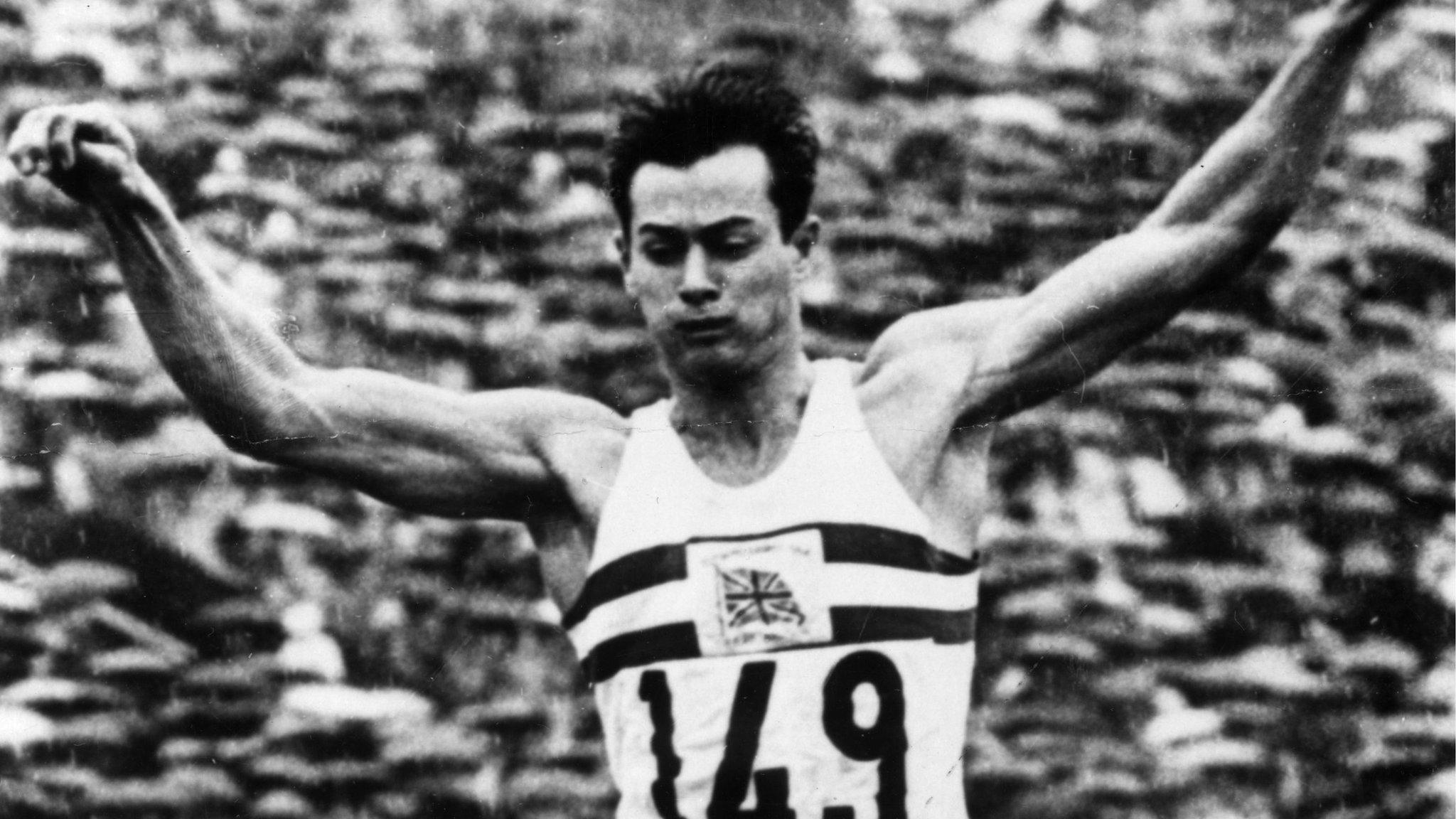
- Published23 August 2020
